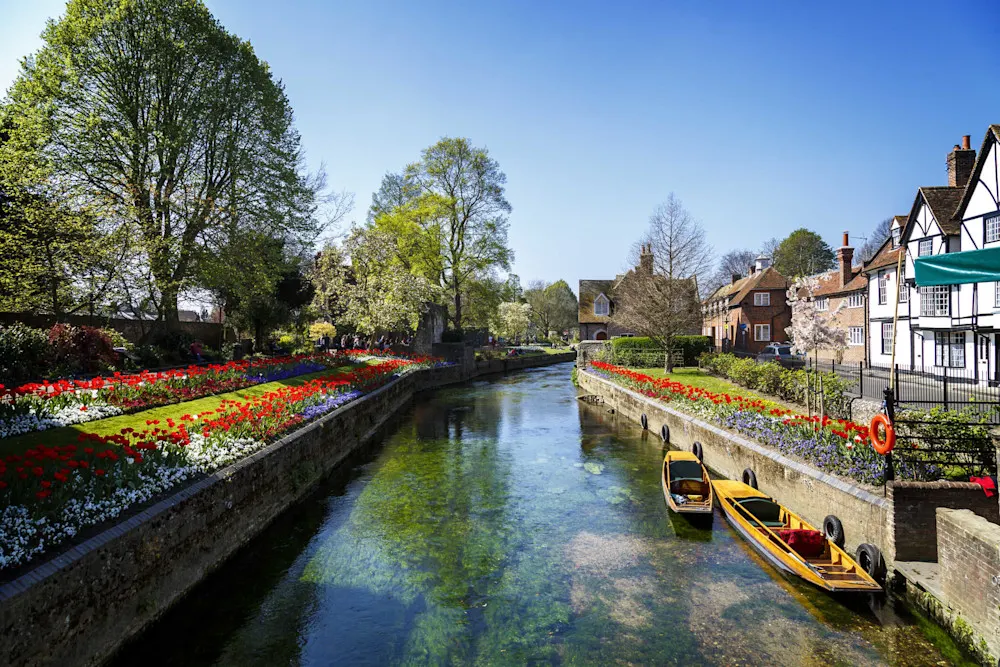The United States threw off the British yoke 276 years ago. Now, many Americans want to become subjects of the Crown once again.
A recent article in the respected British financial outlet, The Financial Times, says the current U.S. political landscape is a “very serious driver” of increased interest in British residency and citizenship from Americans.
Some of this interest comes from high-net-worth Americans who’ve been living in the U.K. as residents but are planning to leave after recent changes that would subject them to higher income tax. Getting a U.K. passport means they can come back if they choose later.
But the biggest source of interest in becoming British is from Americans of more modest means. Over 6,100 U.S. citizens applied to become British subjects last year, the most since records began and up 26% from 2023.
How to Get a Second Passport
How to Get a Second Passport
According to Forbes, 133 million Americans could be eligible for an EU passport…
Our expert shows you 4 paths to a European passport (and the one he’s taking), plus the most common way for Americans to get a second passport in Europe.
Claim your free report and bonus video when you sign up for International Living's Daily Postcards.

By submitting your email address, you will receive a free subscription to IL Postcards, Overseas Dream Home, The Untourist Daily and special offers from International Living and our affiliates. You can unsubscribe at any time, and we encourage you to read more about our Privacy Policy.
Pathways to British Residency and Citizenship

How easy is it to become a U.K. citizen? It all starts with obtaining legal residency. Here are some pathways to that:
1. Employment-Based Visas
The easiest and most common way is to get assigned to work there by your employer. There are six different visa categories under the Global Business Mobility rubric that allow foreign employees to work in the U.K. as long as their employer can prove they’re needed. And these aren’t just for top executives: If you’ve got the right skills in the bottom rungs of a company, you can get a work permit for the U.K. as well.
There are also visas for business innovators and others with talents that could contribute to the economy. Like most other countries in Europe, the U.K. is keen to attract smart young people looking to start new businesses, especially in technology and finance.
These statuses can lead to indefinite leave to remain (ILR) in the U.K., which is akin to permanent residency. After ten years in that status, you can apply for British citizenship.
2. Ancestry-Based Visas
This option, unfortunately, is not available to Americans. It’s limited to citizens of Commonwealth countries (like South Africa, Canada, or Australia) or people who live in British Overseas Territories like Bermuda. Even then, applicants must reside on an Ancestry Visa for five years, then hold ILR for five more years before becoming eligible for citizenship.
3. Student Visas
The U.K. is home to some of the world’s top universities, and securing a student visa allows you to stay in the country for up to five years for undergraduate study. Postgraduates can remain for an additional two years. After graduation, depending on your field and job prospects, you may qualify for ILR and, eventually, citizenship.
4. Marriage to a British Citizen
Americans and Brits may be “cousins,” but they also frequently marry each other. If you marry a British citizen, you can apply for a spouse visa. Once authorities verify that the marriage is genuine and not for immigration purposes, you qualify for ILR.
After three years in that status—during which you cannot be absent from the U.K. for more than 270 days in total, nor more than 90 days in the final 12 months before applying—you can apply for citizenship.
But it’s not automatic. Applicants must have a clean criminal record, demonstrate English proficiency, and pass a test on British history, culture, and laws. (Sadly, knowing all the Monty Python and Blackadder jokes won’t help.)
5. Retirement Visas (or Lack Thereof)
If you were hoping to retire in the U.K. on your savings, you’re out of luck. The Conservative government eliminated the independent means visa in 2022. While the Labour government has taken power, it is unlikely to bring it back, as their focus remains on policies that benefit working- and middle-class Britons.
Who is Actually Applying for U.K. Citizenship?

Figures on the source and status of Americans applying for British citizenship are unavailable, but the most likely scenarios involve people who have been working in the U.K. for some time and spouses of British citizens, including those who may be currently living in the United States. Added to that are a smaller number of American postgrads at British universities, and perhaps some investor types.
Does the U.K. have any advantages over, say, an EU country like Portugal?
For people who already have a plausible pathway to get citizenship there, that in itself is an incentive to make the application. The United Kingdom is a beautiful and venerable country that has existed in one form or another for thousands of years, and its history and culture are attractive to many Americans.
But don’t forget that the U.K. is no longer part of the European Union. You don’t get any special travel and residency privileges on the Continent as the holder of a British passport anymore. And as many Brits are finding, buying a holiday home in places like Spain isn’t as easy as it used to be either. As non-residents, Brits are potentially subject to that country’s recently announced 100% transfer tax on property purchases by foreigners.
My guess is that most of the Americans applying for British passports are those who know the country well and have decided that regardless of its pros and cons, it's the place they’d like to be.
How to Get a Second Passport
How to Get a Second Passport
According to Forbes, 133 million Americans could be eligible for an EU passport…
Our expert shows you 4 paths to a European passport (and the one he’s taking), plus the most common way for Americans to get a second passport in Europe.
Claim your free report and bonus video when you sign up for International Living's Daily Postcards.

By submitting your email address, you will receive a free subscription to IL Postcards, Overseas Dream Home, The Untourist Daily and special offers from International Living and our affiliates. You can unsubscribe at any time, and we encourage you to read more about our Privacy Policy.
Consult with Me, One-on-One
My Mission: To Make Your Life Simpler, Safer, and Freer … Not More Complicated
Stop overcomplicating, second-guessing, or giving in to “information paralysis” … Let’s sit down together (online), and I’ll help you create a custom blueprint for your international goals… second passports, tax, travel, retirement, estate, business, and more…
